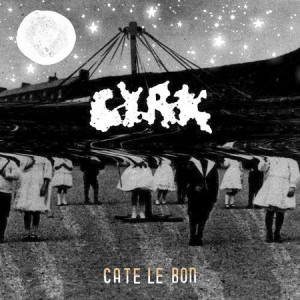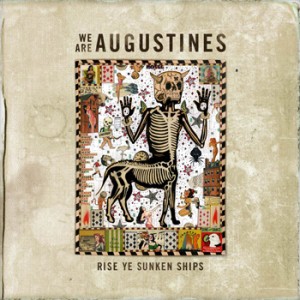"Good evening, boys and girls," growls Swans' grizzled, 58 year-old cult leader Michael Gira. Over the shimmering sound that a wine glass makes when a finger is run around its rim, he begins to chant, slowly: "To be kind, to be kind," he's saying. Let's be clear – one thing Swans have never, ever been is kind.
The shimmering sound turns out to merely be the moment of calm before a two and a half hour shitstorm of noise, as thunderous feedback and the crash of cymbals herald the presence of the five other long-serving members of Swans.
The US band don’t do things by halves, and one quick glance at tonight's stage set up shows nothing has changed. Two almighty drum kits sit side by side, one of which has two (TWO) gongs, while huge amps have been stacked up on top of one another, as if the roadies are all set to play a Borrowers-style game of Jenga after the gig.
The backs of the heads in front bob rhythmically with the second-by-second pounding of drums in 'Avatar', as a wall of sound rises up and KOKO's foundations get a fairly good idea of what to expect should Camden ever find itself at the centre of an earthquake.
At times the intensity of the volume is close to unbearable. Also, because frequent moments in Swans' music could easily soundtrack that bit in a horror film where they find the bodies, parts of the gig feel more like an endurance test than a night out. But, despite the colossal weight of the songs that Swans create, there is also a subtly to their brutal power.
People always recommend that meditation should take place in as quiet a place as possible; however Swans construct an environment of such perfectly orchestrated carnage that it's impossible not to think of anything else except the immediate full-frontal assault happening in front of you. This forms the basis of a strange feeling of peaceful escapism.
Meanwhile, the melody-less 'Coward', a heaving great slab of industrial rock, highlights the tightness of a band that first started playing together thirty+ years ago. The 1980s track again sees Gira chanting, this time the words, "I'm useless, walk away." A few people towards the front of the crowd do, leaving to seek refuge nearer the back with a terror-stricken look on their face.
On the band's return in 2010 after 14 years in the wilderness, Gira promised that Swans would not turn into some "dumb-ass nostalgia act." With a setlist made up of blistering new songs and tracks from this year's apocalyptic 'The Seer', he's a man of his word.
Originally published in Clash.com
Photo credit: Marco Micceri














